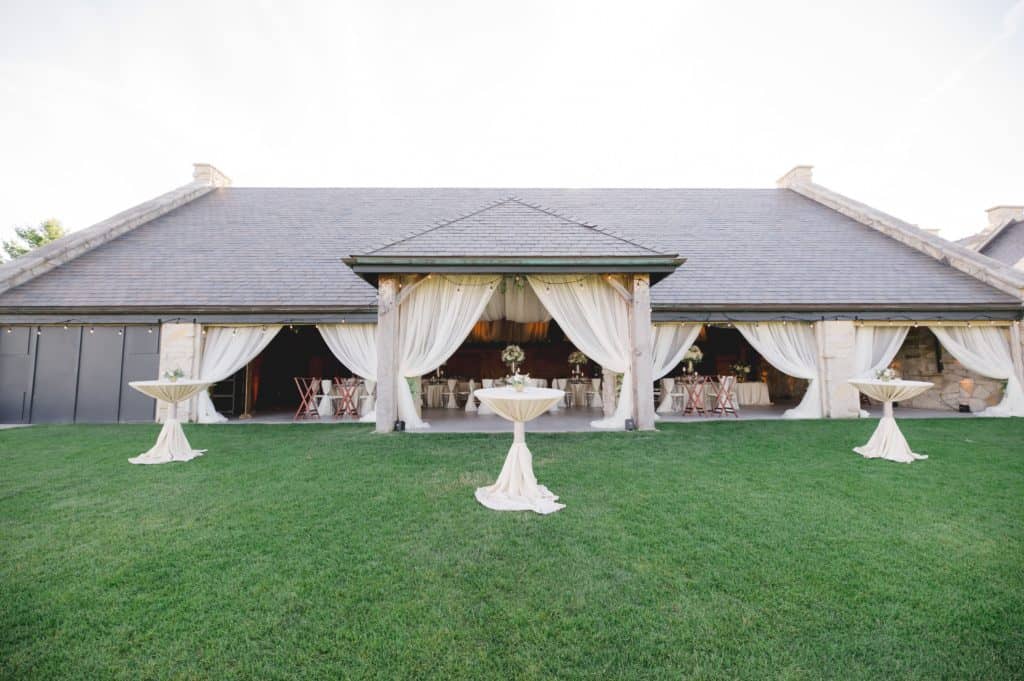Planning a wedding can be an exciting and overwhelming process and it may feel like you need a long time to plan it. However, with the right approach and a clear plan, you can create a beautiful and memorable celebration in just six months.
Whether you’re working with a tight deadline or prefer to tie the knot sooner rather than later, a six-month engagement is the perfect amount of time for you to plan and execute a wedding tailored to your specific needs and preferences. From setting a budget and choosing a venue to finalizing the details and enjoying your special day, here’s everything you need to know about making your wedding planning experience as stress-free and enjoyable as possible:

Setting a budget is one of the most important things to consider when planning a wedding in six months. It can help you determine what you can afford and what you need to prioritize when planning the event. Note that it’s important to set a budget early on in the planning process to make informed decisions about what is financially feasible and what is not within your means.
Here are some tips for determining a realistic budget:
Here are some ways to save money while still having a beautiful wedding:

Choosing the right venue is one of your most important decisions when planning your wedding. There are many factors to consider when selecting a venue, including location, size, style, and cost. Here’s a handy breakdown for you:
Once you’re one with the basic considerations, you’ll need to compare and contrast all your venue options. You can do so by doing an online search, making a list of potential winners, and visiting them in person. It’s always suggested to take detailed notes and photos during your visits. When you’re satisfied with your data, compare the pros and cons of each venue to determine which one best meets your needs.
These are some major tips you can use while negotiating with venue managers:
Choosing the right date and time for your wedding is an essential step in the planning process within the allotted six months. There are some major factors that need to be considered, so you might need to keep the following in mind:
The size of the wedding party and who to ask to be a part of it can be tricky, but with the right approach, you can create a memorable and special event. Consider your budget, the size of your guest list, and the logistics of the event before reaching out to people. Also, think about who is most important to you and who you want to be a part of your special day – everyone else is redundant.
When asking people to be a part of your wedding party, you need to be thoughtful and considerate. It can be a big honor and a big responsibility, so make sure to ask them in person and give them plenty of time to think about it.
Pro tip: Be prepared for the possibility of hurt feelings, scheduling conflicts, and other issues that may arise. In such cases, it’s important to be understanding and communicate openly with your wedding party members to resolve any issues that come up.
Planning the ceremony and reception within 6 months can be challenging, but with the right approach, you can create a beautiful and memorable event that fits your vision and budget.
First off, you must consider the size of your guest list, the location of the event, and your personal preferences when choosing a ceremony and reception format. Be realistic about what you can achieve within the time frame and respect your budget constraints. It’s unrealistic to conjure a million-dollar-worthy theme within half a year, so set your expectations before taking on the whole venture.
Secondly, choose an officiant that aligns with your religious or spiritual beliefs, or consider a non-religious celebrant. Make sure to ask for recommendations from friends, family, or wedding planners. Book them as soon as possible, so they will be available on your set date.
Lastly, choose a caterer that can accommodate your dietary needs and preferences, and select music and entertainment that aligns with your taste and the theme of your wedding. Research and book vendors as soon as possible, as they may be more available and willing to negotiate on prices if they have more lead time.
Finalizing the details of the wedding planning in 6 months can be a daunting task, but with the right approach, you can ensure that everything runs smoothly on your special day.
You’ll need to get organized if you want to keep track of all the details. It can be done by creating a detailed wedding planning checklist and schedule, using a wedding planning app or website, or hiring a wedding planner to help you keep track of all the details.
Moreover, you need to clearly communicate your expectations and deadlines with all vendors and wedding party members and make sure to keep them updated on any changes or issues that may arise.
Pro tip: Be prepared for the possibility of last-minute issues and have a plan in place to handle them. Have a list of emergency contacts, including a wedding planner or day-of coordinator, who can help you quickly resolve any issues that may come up.
In conclusion, planning a wedding in 6 months can be challenging, but it is definitely possible. Remain focused, stay organized, and don’t let the planning process consume you. While it may be a demanding task, remember that it can also be an exhilarating experience. Take a moment to pause, breathe and savor the journey.


Make your tables look like a showpiece using our floor-length tablecloths. We offer a variety of colors and sizes, prints, and textures from our in-house design collection, and don’t forget about your cocktail tables, cake table, and welcome table when choosing the suitable linen for your tables.